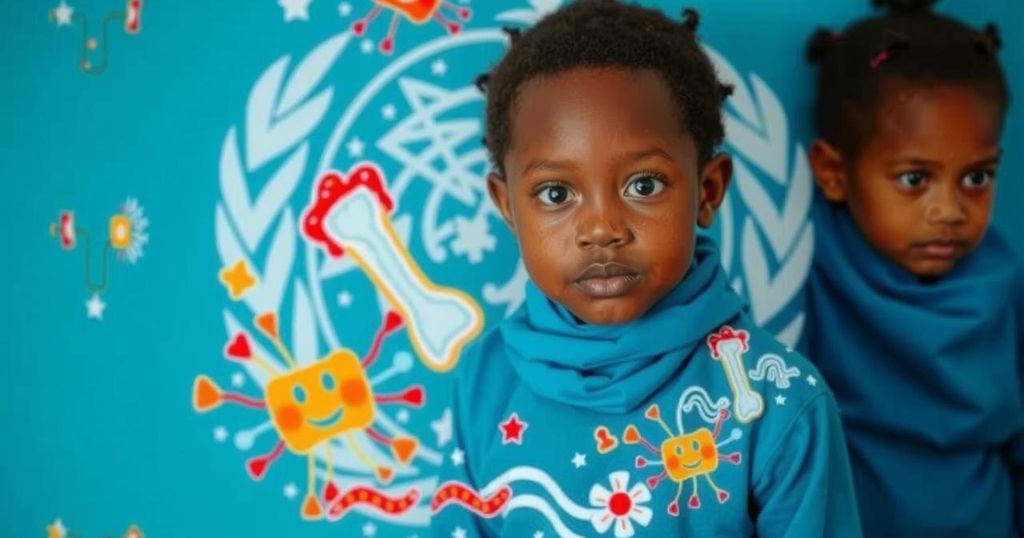UNICEF Warns of Dangers to Children’s Future as Global Crises Intensify
UNICEF has declared an urgent need to safeguard children’s futures amidst demographic changes, climate crises, and technological advancements threatening their rights. Projections indicate stable child populations overall, but significant regional challenges are expected particularly in impoverished parts of Africa and Asia. Nearly half of children face environmental risks, and access to technology remains disproportionately low, especially in low-income countries. Immediate action from global leaders is essential.
UNICEF has issued a grave warning regarding the future of children as demographic changes, climate crises, and technological advancements converge to create an uncertain landscape. Released on World Children’s Day, a recent statement highlighted that unless decisive measures are taken immediately, the rights of children and their potential futures are at significant risk. For example, while the global population of children may remain stable at 2.3 billion by 2050, substantial regional shifts indicate a concerning concentration of childhood in impoverished areas of Africa and Asia.
UNICEF Executive Director Catherine Russell emphasized the urgency of these challenges, acknowledging that children currently face a myriad of crises ranging from climate shocks to digital threats. Projections reveal that demographic shifts could see an increase of approximately 1.3 million children in select Pacific Island nations amidst declining child populations in countries like India and China, raising pressing concerns over resource allocation and social services.
As climate change continues to escalate, nearly half of the world’s children now live in areas facing significant environmental risks, including severe air pollution, droughts, and lack of clean drinking water. These conditions pose severe threats to children’s health and development. Furthermore, the reliance on breakthrough technologies for education and health emerges as both an opportunity and a peril, with considerable disparities in access to digital resources exacerbating existing inequalities among children, particularly in low-income countries.
UNICEF calls for urgent, proactive measures from global leaders to protect the rights and wellbeing of children today, ensuring their rights to a sustainable and healthy environment. Ms. Russell concluded by stating the critical need for immediate action to secure a favorable future for generations to come.
UNICEF, the United Nations Children’s Fund, focuses on the protection of children’s rights and their welfare globally. In the face of multivariate challenges such as demographic shifts, climate change, and technology advancements, UNICEF has drawn attention to the implications of these forces on children’s future. The statement released during World Children’s Day highlights critical trends that threaten children’s rights and opportunities, underlining the necessity of immediate, coordinated action from governments and leaders to safeguard the next generation’s potential as set against a backdrop of ecological degradation and social inequality.
In summary, UNICEF warns that the future of children is precarious, marked by demographic shifts, climate crises, and technological disparities. With projections indicating significant challenges ahead, the organization calls for urgent intervention from global leaders to protect children’s rights and ensure a sustainable future. The immediate action is essential to counteract the threats posed by environmental degradation and digital inequities that could undermine decades of progress for children worldwide.
Original Source: www.fijitimes.com.fj




Post Comment